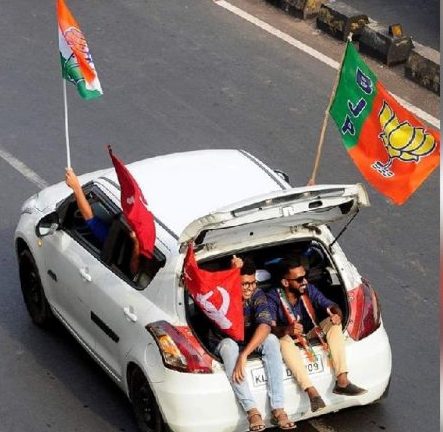In a vibrant democracy like India, where the power to shape the nation’s future rests in the hands of its citizens, it becomes imperative to invest in their political education. While the formal education system lays the foundation for academic and professional growth, a specialized avenue for political education, in the form of “political schools,” could be a transformative step. This article throws light onto the reasons why India should consider establishing more political schools to create informed, engaged, and responsible citizens who actively participate in shaping the country’s destiny.
Understanding Political Education
Political education involves equipping individuals with knowledge about political systems, ideologies, policies, and civic responsibilities. It goes beyond the mere understanding of how government functions; it encourages critical thinking, enhances awareness of social issues, and fosters the ability to make informed decisions. While conventional schooling introduces students to citizenship studies, having dedicated political schools can deepen this knowledge and prepare citizens for a more active role in the democratic process.
The Foundations of Democracy
Democracy thrives when its citizens are well-informed and actively participate in the political process. Political schools can lay the foundation for this active engagement. By providing comprehensive courses on the history of democracy, the functioning of government institutions, and the role of media in shaping public opinion, these schools can nurture individuals who understand the significance of their voices and votes.
Cultivating Critical Thinking
A robust democracy demands citizens who can think critically and evaluate information objectively. Political schools can integrate critical thinking into their curriculum, enabling students to discern between facts and opinions, analyze policy implications, and question authority constructively. These skills not only empower individuals in the political arena but also have wider applications in everyday life.
Fostering Civic Responsibility
Citizenship is more than a legal status; it comes with responsibilities towards the nation and fellow citizens. Political schools can emphasize the importance of civic responsibility by teaching about ethical governance, community engagement, and the need to contribute positively to society. Such education can lead to a generation of citizens who prioritize the collective good and actively seek ways to bring about positive change.
Combatting Political Apathy
One of the challenges India faces is political apathy among its citizens, particularly the youth. Apathy arises from a lack of understanding or trust in the political system. Political schools can bridge this gap by demystifying politics and demonstrating its impact on everyday lives. When individuals comprehend how policies influence education, healthcare, the economy, and other aspects, they are more likely to engage proactively in the democratic process.
Elevating the Quality of Leadership
Effective leadership is pivotal to a nation’s progress. Political schools can identify and nurture young leaders who are not only well-versed in policy matters but also possess strong ethical values. By emphasizing the importance of servant leadership and the responsibility of elected officials towards their constituents, these schools can contribute to a generation of leaders dedicated to the welfare of the nation.
Promoting Diversity of Thought
A thriving democracy thrives on diversity – not just in terms of demographics, but also in thought and ideas. Political schools can serve as platforms where individuals from diverse backgrounds come together to exchange perspectives. This exposure encourages tolerance, broadens horizons, and minimizes the risk of echo chambers that reinforce singular viewpoints.
Addressing Complex Global Challenges
In an interconnected world, many issues require collaborative global solutions. Political schools can equip students with an understanding of international relations, diplomacy, and the complexities of global challenges such as climate change, terrorism, and trade. This knowledge positions India to be a responsible global citizen, actively participating in finding solutions to these issues.
Political schools hold the potential to reshape India’s democratic landscape by producing informed, engaged, and responsible citizens. By cultivating critical thinking, fostering civic responsibility, and promoting active participation, these schools can address the political apathy that hinders the nation’s progress. As India navigates an increasingly complex world, investing in political education is not just an option but a necessity to ensure a brighter future for generations to come.




🫡🫡🫡🫡🫡
Thank you so much for your response, we are glad you liked it!
This topic is out of the box. Regardless of what impact and consideration the topics gets, I’m flattered by the choice.
Thank you so much for your response, we are glad you liked it!!